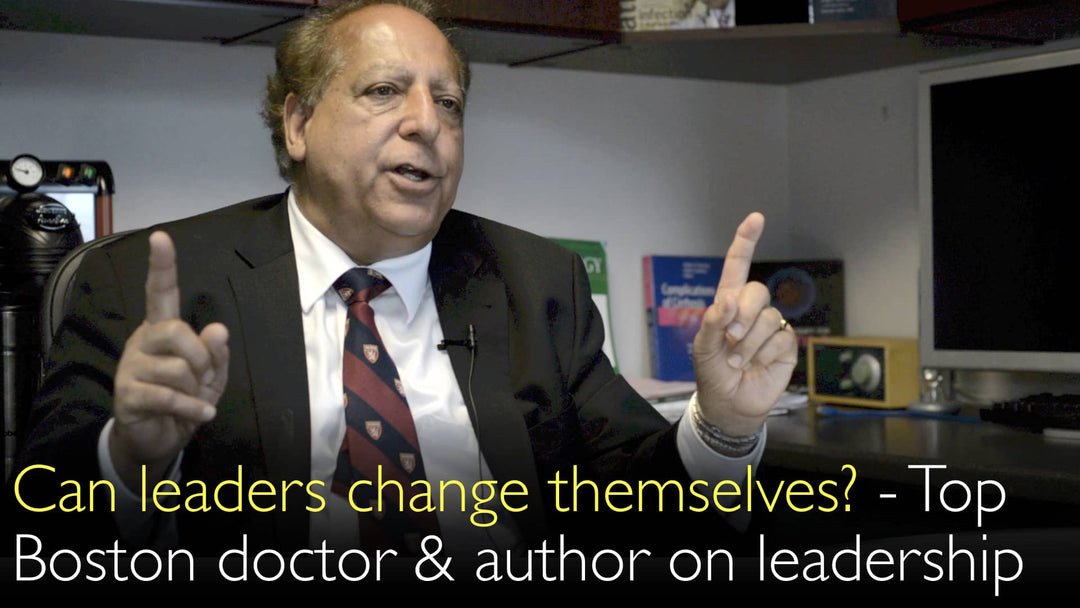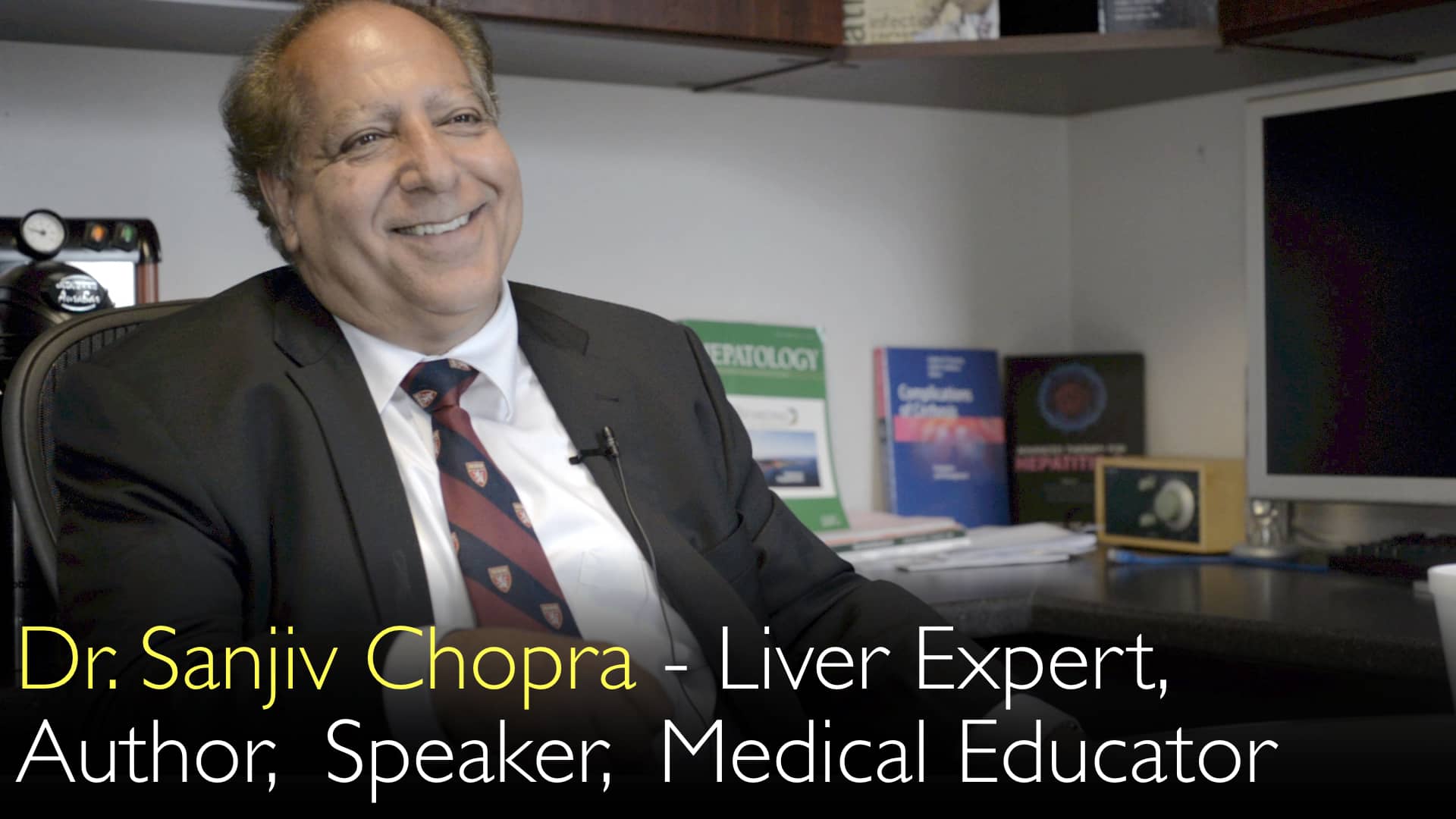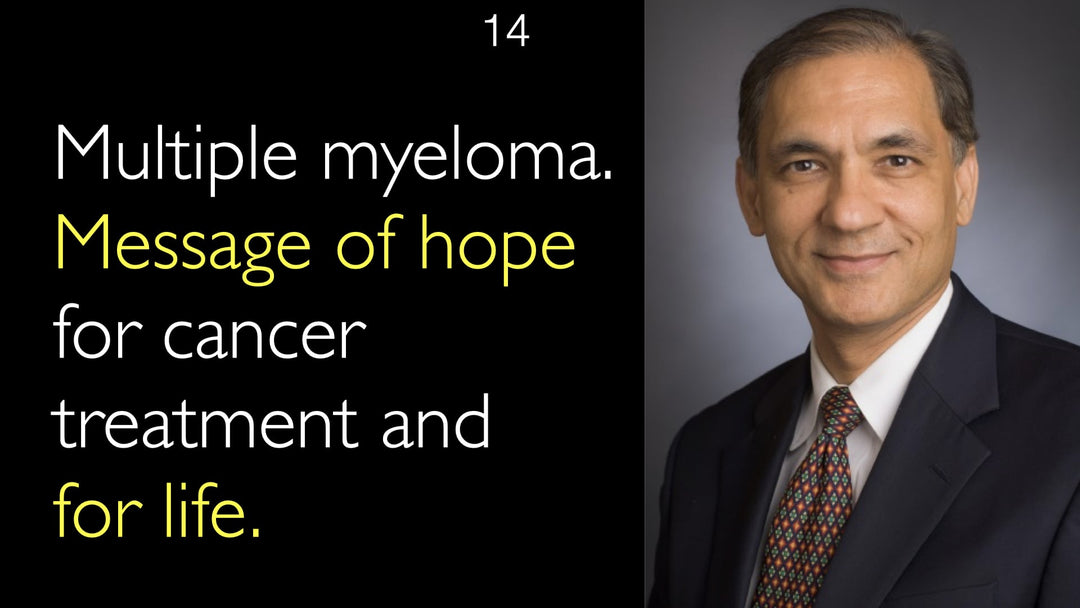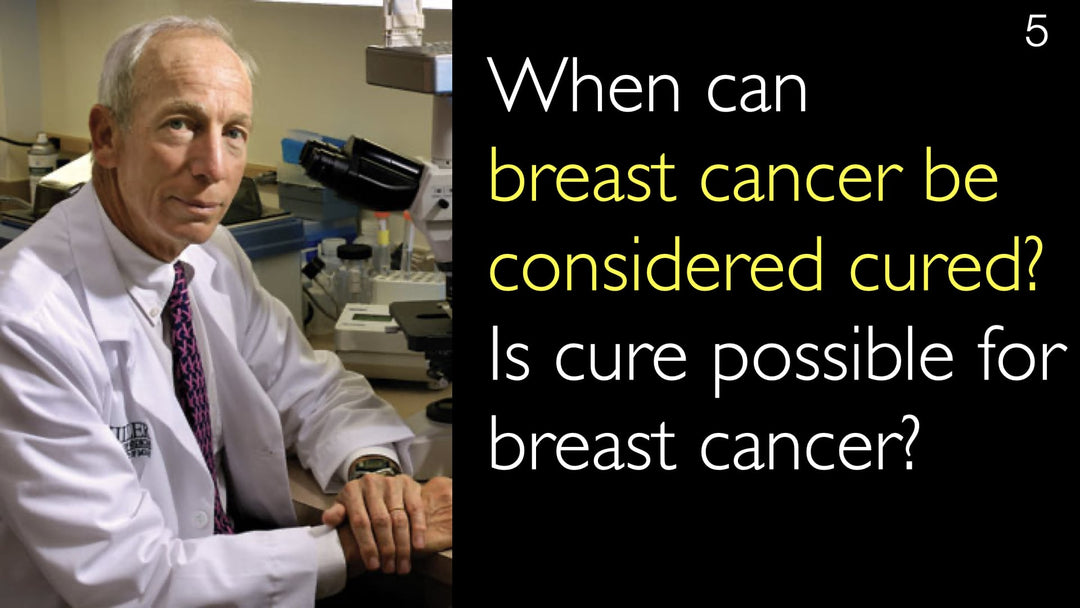O renomado especialista em liderança e medicina, Dr. Sanjiv Chopra, MD, explica que a liderança é uma qualidade dinâmica que pode ser desenvolvida por qualquer pessoa, não apenas por quem ocupa cargos formais. Ele detalha os princípios fundamentais da liderança eficaz, incluindo escuta ativa e empatia, e ressalta que os verdadeiros líderes inspiram pelo exemplo, tornando-se gradualmente dispensáveis ao capacitar seus seguidores para que brilhem por conta própria.
Como Desenvolver Liderança Autêntica e Liderar pelo Exemplo
Navegar pelas Seções
- O que Define Verdadeiramente a Liderança?
- Cargos Formais vs. Atributos de Liderança
- A Diferença Essencial entre Líderes e Gerentes
- Como Qualquer Pessoa Pode Desenvolver Habilidades de Liderança
- Princípios Fundamentais da Liderança pelo Exemplo
- A Lição de Gandhi: O Poder do Exemplo na Liderança
O que Define Verdadeiramente a Liderança?
Em sua conversa com o Dr. Anton Titov, o Dr. Sanjiv Chopra apresenta uma definição impactante de liderança: a capacidade de articular uma visão convincente e, ao mesmo tempo, inspirar os outros a seguirem esse caminho. A verdadeira liderança motiva as pessoas a superarem os desafios do cotidiano e a colaborarem em prol de um objetivo maior e comum.
Esse conceito transcende a simples autoridade ou posição hierárquica. Trata-se de influenciar, inspirar e criar um propósito compartilhado que impulsione conquistas coletivas.
Cargos Formais vs. Atributos de Liderança
O Dr. Sanjiv Chopra faz uma distinção crucial: um cargo formal não garante, por si só, qualidades de liderança. Alguém pode ocupar uma posição de destaque — como CEO, presidente ou primeiro-ministro — e ainda carecer dos atributos essenciais de um verdadeiro líder.
Por outro lado, é perfeitamente possível ser um líder excepcional sem jamais ter ocupado um cargo oficial. Chopra define um grande líder como alguém que se torna progressivamente dispensável, ao capacitar seus seguidores para assumirem responsabilidades e, eventualmente, superarem seu desempenho.
A Diferença Essencial entre Líderes e Gerentes
Em diálogo com o Dr. Anton Titov, o Dr. Sanjiv Chopra destaca a distinção importante entre gestão e liderança, recorrendo ao guru da administração Peter Drucker. O famoso adágio diz: "gerentes fazem as coisas direito; líderes fazem as coisas certas".
Chopra amplia essa ideia com uma perspectiva de Dipak Jain, ex-reitor da Kellogg School of Management, que resumiu a diferença de forma sucinta: "Gerentes são para o hoje; líderes, para o amanhã". Isso evidencia o papel do líder em construir uma visão inspiradora do futuro e em saber comunicá-la à sua equipe.
Como Qualquer Pessoa Pode Desenvolver Habilidades de Liderança
Um dos pontos centrais defendidos pelo Dr. Sanjiv Chopra é que a liderança não é um traço estático, inato. Ele sustenta que todos podem desenvolver características de liderança por meio de prática deliberada e foco contínuo.
Essa visão dinâmica significa que tanto indivíduos quanto organizações podem aprimorar essas competências ao longo do tempo. Chopra ensina que, ao concentrar-se em princípios específicos e exercitá-los consistentemente, qualquer pessoa pode se tornar um líder mais eficaz e inspirador.
Princípios Fundamentais da Liderança pelo Exemplo
O Dr. Sanjiv Chopra defende que a liderança se constrói sobre princípios fundamentais, detalhados em seu livro e palestras. Ele recomenda que organizações foquem em um princípio por vez para desenvolver essas habilidades coletivamente.
O primeiro princípio é a escuta. Uma equipe pode estabelecer como meta, durante uma semana, aprimorar sua capacidade de ouvir. Na semana seguinte, o foco pode ser a empatia, exercitando maior gentileza e compaixão no trato com pacientes e colegas. Chopra sugere realizar breves reuniões para trocar experiências, o que ajuda a incorporar essas qualidades na cultura organizacional por meio do exemplo.
A Lição de Gandhi: O Poder do Exemplo na Liderança
O Dr. Sanjiv Chopra recorre a uma história marcante para ilustrar a importância absoluta de liderar pelo exemplo. Uma mãe percorreu 40 milhas para pedir a Gandhi que dissesse ao filho para parar de comer açúcar. Gandhi pediu que voltassem dali a três semanas.
Quando retornaram, Gandhi simplesmente orientou o menino a abandonar o açúcar, e ele concordou. A mãe, perplexa, perguntou por que ele não dissera isso três semanas antes. Gandhi sussurrou: "Naquela época, eu ainda não havia abandonado o açúcar". Essa história, compartilhada por Chopra, sintetiza perfeitamente a ideia de que um líder deve personificar a mudança que deseja ver antes de poder exigi-la autenticamente dos outros.
Transcrição Completa
Dr. Anton Titov, MD: O cargo não confere a você qualidades de liderança. É possível ser um líder extraordinário sem jamais ter um cargo formal. Um grande líder torna-se progressivamente redundante. Torna-se dispensável, e seus seguidores assumem e realizam um trabalho ainda melhor.
Dr. Anton Titov, MD: Professor Sanjiv Chopra, liderança. O senhor escreveu um best-seller, "Liderança pelo Exemplo", e já ministrou mais de cem vezes ao redor do mundo a palestra "Liderança para o Século XXI: Os Princípios da Liderança", com grande receptividade. Citou Peter Drucker: "Grandes gerentes fazem as coisas direito. Grandes líderes fazem as coisas certas".
Mas um grande líder também pode conduzir um país ou uma empresa para trás, e não necessariamente para a frente. Há vários exemplos de líderes fortes que arruinaram suas empresas e até seus países.
A liderança é uma qualidade estática? Os líderes podem mudar o rumo e o modo como lideram? Podem mudar a si mesmos? Ou é sempre preciso substituir os líderes para alterar a direção de um país ou empresa?
Dr. Sanjiv Chopra, MD: Excelentes perguntas! Sempre fui fascinado por líderes e por grandes momentos de liderança na história. Talvez devêssemos começar definindo liderança.
Eu a definiria como a capacidade de articular uma visão e percorrer o caminho de modo a inspirar outras pessoas a transcendarem a mesmice e os conflitos do cotidiano, em direção a um objetivo comum e superior.
O título de "líder" não concede a ninguém qualidades de liderança. Alguém pode ser CEO, chanceler, vice-presidente, presidente, senador, deputado ou primeiro-ministro. Pode deter todos esses cargos impressionantes, mas não ser um líder de fato.
O cargo não confere qualidades de liderança. É perfeitamente possível ser um líder extraordinário sem ter um cargo, certo? A definição de um grande líder é alguém que se torna progressivamente redundante. Torna-se dispensável, e os seguidores assumem e realizam um trabalho melhor.
Liderança é um tema fascinante e dinâmico. Acontece que os líderes não nascem necessariamente prontos. Todos podem desenvolver os elementos da liderança.
Em meu livro e palestras, abordo os dez princípios da liderança. Sobre a citação que mencionou: precisamos de ambos, gerentes e líderes. Alguém pode ser um gerente excepcional, mas não um bom líder. Pode ser um grande líder e não um bom gerente.
Essa é uma máxima de Peter Drucker, o guru da administração. Ele disse: "Gerentes fazem as coisas direito; líderes fazem as coisas certas". Certa vez, conversando com Dipak Jain, uma figura lendária que foi reitor da Kellogg School of Management — um dos cinco melhores programas de MBA do mundo — e também da INSEAD na Europa, outra das principais escolas de negócios globais, perguntei: "Dipak, qual é a diferença entre gerentes e líderes?"
Ele deu uma definição maravilhosa: "Gerentes são para hoje; líderes são para amanhã". Eles têm uma visão convincente do futuro, sabem articulá-la e fazem com que seus seguidores cooperem para alcançá-la. O líder lidera por trás.
Podemos cultivar a liderança de diversas formas. Em meu livro, discuto os 10 princípios. Quando apresento essa palestra em centros de transplante, Grand Rounds de cirurgia ou medicina, ou para grupos de CEOs, muitas vezes me perguntam: "Como podemos incorporar isso? O que fazer com o que nos ensinou?"
Recomendo: escolham um princípio e façam dele uma meta em sua empresa ou centro. Na semana seguinte, foquem em ser melhores ouvintes. Esse é o primeiro princípio da liderança pelo exemplo — o "L" de "escutar" (listening).
Ao final da semana, compartilhem as experiências. Na semana seguinte, trabalhem a empatia — pratiquem mais gentileza e compaixão. Na outra, realizem uma breve reunião de 10 minutos para trocar impressões sobre como foi ser mais gentil com pacientes e familiares. Aos poucos, vocês estarão vivendo esses valores pelo exemplo.
Há uma história extraordinária sobre Gandhi. Uma senhora caminhou 40 milhas com seu filho de doze anos e disse: "Gandhi-ji, meu filho come muito açúcar e está engordando. Por favor, diga a ele para parar". Gandhi olhou para o menino e para a mãe e pediu que voltassem em três semanas.
Três semanas depois, fizeram novamente a longa caminhada. Ao chegarem, Gandhi olhou para o menino e disse: "Filho, não coma açúcar — faz mal, e você está engordando". O menino respondeu: "Gandhi-ji, a partir de agora pararei". Ao saírem, a mãe ficou e perguntou: "Gandhi-ji, obrigada. Mas por que não disse isso três semanas atrás?" Gandhi sussurrou: "Naquela época, eu ainda não havia abandonado o açúcar".
É preciso liderar pelo exemplo! É uma história fascinante, extraordinária!
Sim, extraordinária! Gandhi liderou pelo exemplo, e é isso que os grandes líderes fazem. Tanto nas grandes quanto nas pequenas questões. Com certeza!








